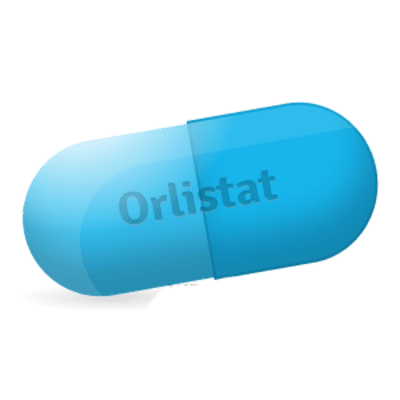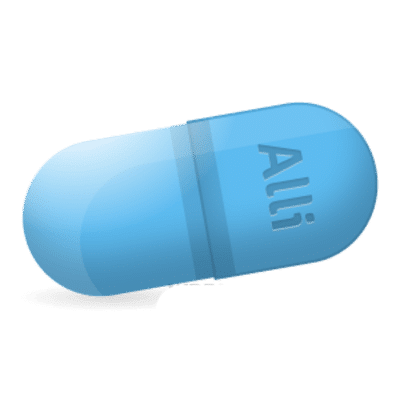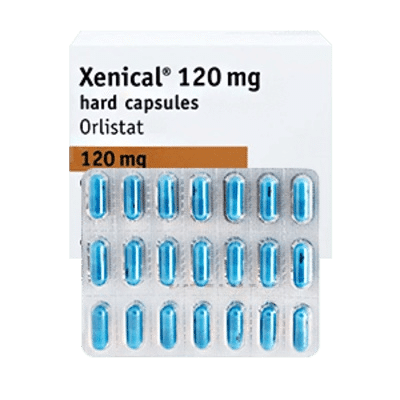Excellent result: After just a few weeks of using Orlistat, I noticed weight loss. Of course, I had to stick to a low-fat diet, but the result was worth it. There were side effects in the form of frequent bowel movements, but they gradually decreased.

Orlistat
Active ingredients: Orlistat- Quality products
- Support 24/7
- Fast delivery
What is it?
Orlistat is a drug aimed at treating obesity and weight control. The drug acts as an inhibitor of lipases, enzymes that are involved in the breakdown of fats in the gastrointestinal tract. Orlistat blocks about 30% of fats from food, preventing them from being absorbed into the body. Instead, fats are excreted naturally, which helps to reduce body weight if you follow a low-calorie diet.
Orlistat does not have a systemic effect on the body, since it is practically not absorbed into the blood. This makes it relatively safe for long-term use, but side effects related to the intestines are possible, such as flatulence, frequent bowel movements or oily discharge
Composition
Orlistat contains the active substance of the same name - Orlistat, which acts as the main component of the drug. Each capsule contains 120 mg of Orlistat. Microcrystalline cellulose, sodium lauryl sulfate, gelatin and other substances that ensure the stability and form of the drug can be added as auxiliary components.
Orlistat is available in capsules, which are usually light in color and contain powder. This form allows for convenient use and rapid onset of action in the gastrointestinal tract
How to use?
Orlistat is taken orally, usually one capsule (120 mg) three times a day with or within an hour of meals. The medicine should be taken with a full glass of water. It is important that each meal contains some fat, as without fat, Orlistat will not work. If a meal is missed or there is no fat in the meal, a dose can be skipped.
To achieve the maximum effect, it is important to follow a low-calorie, controlled-fat diet. The recommended duration of treatment is from three months to six months, but in any case, the course should be determined by a doctor based on individual indications.
How does it work?
Orlistat works by inhibiting lipase enzymes, which are responsible for breaking down fats in the digestive system. When lipases are blocked, fats from food are not broken down into their constituents and cannot be absorbed in the intestines. As a result, about 30% of the fats in food are eliminated from the body naturally, which helps to reduce body weight.
This effect of Orlistat leads to a calorie deficit, which forces the body to use its own fat reserves for energy. The drug acts locally in the gastrointestinal tract and practically does not enter the systemic bloodstream, which minimizes the risk of systemic side effects.
Indications
Orlistat is prescribed for the treatment of obesity, especially in patients with a body mass index (BMI) of 30 or higher. The drug is also effective for weight loss in people with a BMI of 27 or higher if they have comorbidities associated with excess weight, such as hypertension, type 2 diabetes, or dyslipidemia. Orlistat not only helps to reduce weight, but also prevents it from returning once the desired result has been achieved.
Orlistat must be used in combination with a low-calorie diet aimed at reducing fat intake. This ensures a more sustainable and long-lasting effect of therapy.
- Treatment of obesity for the purpose of weight loss.
- Prevention of weight gain after weight loss.
- Reduction in the risk of developing complications associated with excess weight, such as type 2 diabetes and cardiovascular disease.
Contraindications
Orlistat is not recommended in some cases, as it may cause unwanted effects or be ineffective. Absolute contraindications include:
- Pregnancy and breastfeeding, since the safety and efficacy of the drug for these groups have not been established.
- Chronic malabsorption syndrome is a condition in which the body is unable to absorb nutrients from food.
- Cholestasis is a violation of the outflow of bile, which can be aggravated by the use of Orlistat.
- Age under 12 years - the drug is not intended for use in children.
- Hypersensitivity to the active substance or any of the auxiliary components of the drug.
- Nephrolithiasis and hyperoxaluria, since Orlistat can increase the amount of oxalates in the urine, which leads to the risk of kidney stones.
Before starting to use Orlistat, you must consult a doctor to exclude possible contraindications and minimize the risk of side effects
Side effects
Orlistat may cause various side effects, most of which are related to its main mechanism of action - blocking fat absorption. These effects are most often observed in the first weeks of taking the drug and may decrease as the body adapts.
- Gastrointestinal disorders: the most common side effects are diarrhea, frequent and urgent urge to defecate, oily discharge from the anus, flatulence with the release of fat, and a feeling of fullness in the intestines.
- Vitamins absorption disorders: Orlistat may reduce the absorption of fat-soluble vitamins (A, D, E, K), which requires additional intake of multivitamins.
- Rare effects: very rare conditions such as allergic reactions, abdominal pain, hepatitis, and kidney stones may occur.
These effects are usually reversible and disappear after stopping the drug. In case of serious or persistent side effects, consult a doctor.
Frequently asked questions
Orlistat Reviews and Experiences
It helps, but not without its downsides: I took Orlistat on the recommendation of a doctor to combat obesity. I lost about 8 kg in three months, but had to deal with the inconvenience of frequent oily discharge. Despite this, the result met expectations.
There are side effects: Orlistat does help to lose weight, but the first two weeks of taking it were difficult due to unpleasant side effects - frequent urge to go to the toilet and flatulence. However, later the body adapted, and the result became noticeable.









